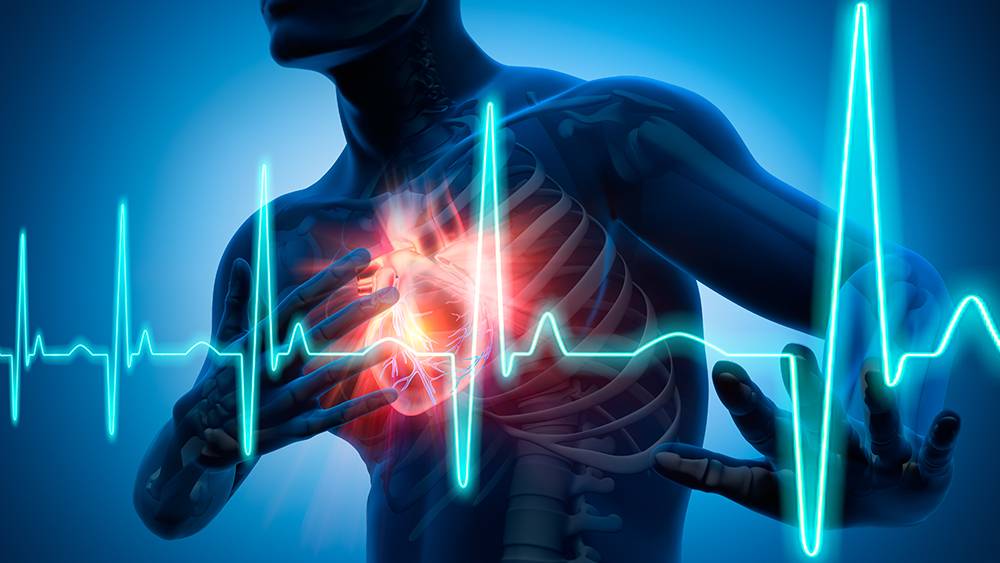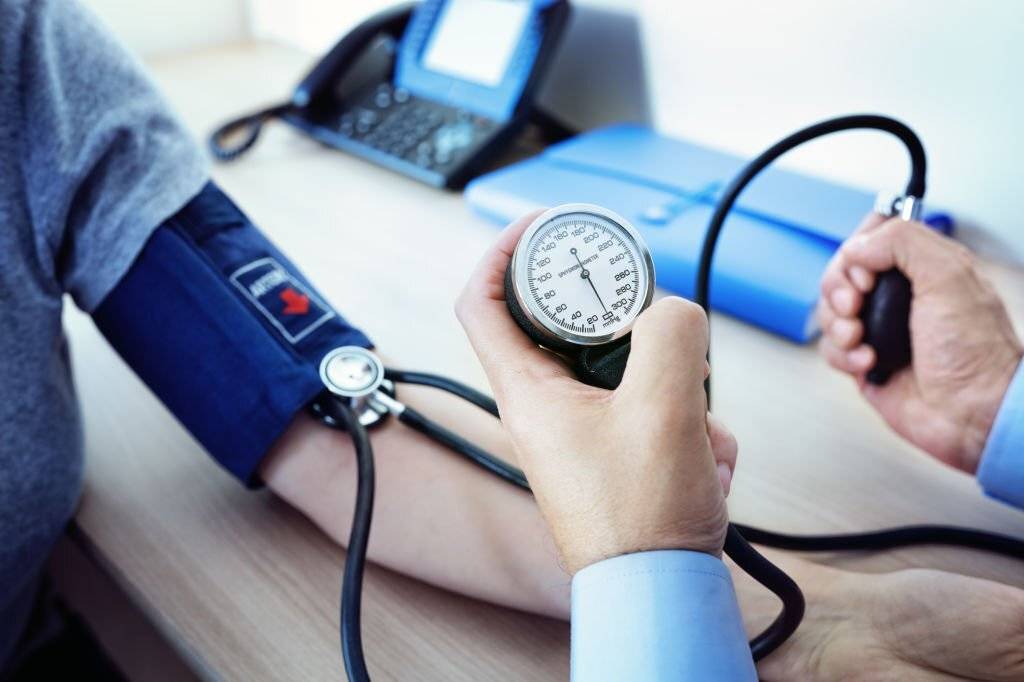Did you know that high blood pressure can silently damage your heart, even if you feel perfectly fine? Many people go about their daily lives unaware that their blood pressure is dangerously high, putting them at risk for life-threatening heart conditions like heart attacks and strokes. The worst part? The symptoms often don’t show up until it’s too late.
Therefore, understanding the link between high blood pressure and heart disease is the first step to protecting your health and taking control now.
In this blog, we’ll dive into:
- How high blood pressure affects your heart and leads to serious problems.
- Practical tips on how to manage your blood pressure and prevent heart disease.
- Why seeing an online heart specialist could be a game changer for your health.
Don’t wait for the signs to get worse. Read on and take the first step towards a healthier, heart-strong life.
Contents
The Connection Between High Blood Pressure and Heart Disease
High blood pressure, or hypertension, is one of the leading risk factors for heart disease, affecting millions of people worldwide. According to the World Health Organization (WHO), nearly 1 in 4 adults globally suffer from high blood pressure, with the number rising steadily due to lifestyle factors like poor diet and lack of exercise. In India alone, approximately 30% of adults have hypertension, and a significant portion of these individuals are unaware of their condition.
Studies show that people with untreated high blood pressure are more than twice as likely to develop heart disease compared to those with normal blood pressure. The longer high blood pressure is left unmanaged, the higher the risk of serious cardiovascular problems such as heart attacks, heart failure, and strokes.
How High Blood Pressure Contributes to Heart Disease?
 A normal reading is anything below 120/80 mmHg. This means your heart and blood vessels are under minimal stress.
A normal reading is anything below 120/80 mmHg. This means your heart and blood vessels are under minimal stress.
However, a reading of 130-139 mmHg systolic or 80-89 mmHg diastolic is classified as Stage 1 hypertension. But when the blood pressure readings rise to 140/90 mmHg or higher, this indicates Stage 2 hypertension, a more serious condition that requires medical intervention.
Here’s how high blood pressure causes damage to your heart and blood vessels over time.
-
Coronary Artery Disease (CAD): Persistent hypertension can damage the arteries that supply blood to the heart. The increased pressure leads to the thickening and narrowing of these arteries (atherosclerosis), reducing blood flow to the heart. This makes it more likely for blood clots to form, which can block the arteries and lead to a heart attack.
-
Heart Attack: High blood pressure forces your heart to work harder than normal. Over time, this added stress can lead to weakened heart muscles, putting you at risk of a heart attack.
-
Heart Failure: If high blood pressure is left untreated, it can lead to heart failure. The heart becomes too weak or stiff to pump blood effectively, resulting in a condition where the heart can no longer meet the body’s demands.
Other Complications Caused by Hypertension
High blood pressure doesn’t only affect your heart; it can also worsen other chronic conditions, making overall health even more challenging. Some of the additional risks include:
-
Kidney Disease: The kidneys play a critical role in regulating blood pressure. High blood pressure can damage the blood vessels in the kidneys, leading to kidney disease or even kidney failure if not controlled.
-
Diabetes: People with high blood pressure are more likely to develop type 2 diabetes. The combination of both conditions significantly raises the risk of heart disease and stroke.
-
Stroke: High blood pressure is one of the most significant causes of stroke. It can lead to the rupture or blockage of blood vessels in the brain, leading to a stroke.
In conclusion, high blood pressure is not just a minor inconvenience—it’s a serious condition that can significantly increase the risk of heart disease and other health complications. Managing your blood pressure is essential to protecting not just your heart, but your overall health.
Can High Blood Pressure Be Managed to Prevent Heart Disease?

The good news is that high blood pressure can be managed, and managing it effectively can significantly reduce your risk of developing heart disease and other serious health problems. Let’s explore how you can take control of your blood pressure and protect your heart.
Lifestyle Changes

Before jumping into medications, making simple changes to your daily lifestyle can go a long way in lowering your blood pressure and improving your overall heart health. Here are some key changes to consider:
-
Healthy Diet: Eating a balanced diet rich in fruits, vegetables, whole grains, lean proteins, and low-fat dairy can help lower blood pressure. The DASH (Dietary Approaches to Stop Hypertension) diet is particularly effective for managing high blood pressure, as it emphasizes foods rich in potassium, magnesium, and fiber.
-
Reduce salt intake: Too much sodium can raise blood pressure. Try to limit your sodium intake to less than 2,300 mg per day (about one teaspoon of salt) and ideally aim for 1,500 mg for optimal heart health.
-
-
Exercise Regularly: Regular physical activity helps keep your heart strong and lowers blood pressure. Aim for at least 150 minutes of moderate-intensity exercise per week (such as walking, cycling, or swimming). Even small increases in activity, like walking 30 minutes a day, can make a big difference.
-
Weight Management: If you are overweight or obese, losing even a small amount of weight can help reduce blood pressure. A healthy body mass index (BMI) of 18.5–24.9 is ideal for heart health.
-
Limit Alcohol and Caffeine: Drinking too much alcohol and excessive caffeine can raise your blood pressure. It’s recommended to drink in moderation—no more than one drink per day for women and two for men.
-
Quit Smoking: Smoking is a major contributor to heart disease and high blood pressure. Quitting smoking improves heart health and can lower blood pressure over time.
-
Stress Management: Chronic stress can raise blood pressure and contribute to unhealthy lifestyle choices like overeating or drinking. Practicing stress-reducing techniques such as yoga, meditation, deep breathing exercises, or simply taking regular breaks during the day can help manage your blood pressure.
Medications
 Sometimes, lifestyle changes alone may not be sufficient to control high blood pressure, especially if it’s in the moderate or severe range. In these cases, doctors may prescribe medication to help lower your blood pressure and prevent heart disease. Some common types of blood pressure medications include:
Sometimes, lifestyle changes alone may not be sufficient to control high blood pressure, especially if it’s in the moderate or severe range. In these cases, doctors may prescribe medication to help lower your blood pressure and prevent heart disease. Some common types of blood pressure medications include:
-
Diuretics (Water Pills): These help your body eliminate excess sodium and water, which can lower blood pressure.
-
ACE Inhibitors: These help relax blood vessels by blocking a hormone that narrows blood vessels, making it easier for your heart to pump blood.
-
Beta-Blockers: These reduce the heart rate and the amount of work the heart has to do, which helps lower blood pressure.
-
Calcium Channel Blockers: These prevent calcium from entering the cells of the heart and blood vessels, helping to relax the blood vessels and lower blood pressure.
It’s important to take your prescribed medications exactly as directed by your doctor, as skipping doses or stopping medications can increase your risk of heart disease.
Managing high blood pressure is an ongoing process. It’s crucial to regularly check your blood pressure to ensure that it remains in a healthy range. Your doctor may recommend frequent check-ups to assess how well your treatment plan is working.
In summary, high blood pressure can be controlled and even prevented from causing heart disease with the right approach. By making heart-healthy choices and following your doctor’s advice, you can significantly lower your risk of serious cardiovascular issues and lead a healthier, more fulfilling life.
How Online Heart Specialists Can Help in Managing High Blood Pressure
 Managing high blood pressure doesn’t have to be complicated or stressful. With online heart specialists, you can easily take charge of your health from the comfort of your home. Here’s how virtual consultations make a difference:
Managing high blood pressure doesn’t have to be complicated or stressful. With online heart specialists, you can easily take charge of your health from the comfort of your home. Here’s how virtual consultations make a difference:
- No need to wait for long appointments at crowded clinics.
- You can connect with experienced heart specialists anytime, anywhere, and get expert advice tailored to your needs.
- Online heart specialists ensure you stay on track by offering frequent check-ins, adjusting treatments as needed.
- Easy-to-use apps and digital tools
Managing high blood pressure is a crucial step in preventing heart disease—and with online heart specialists, it’s easier than ever. Don’t wait for symptoms to worsen—get started today and take control of your heart health!
Are you suffering from cardiovascular diseases and looking to consult a cardiologist? MantraDoc makes it easy! Connect with experienced cardiologists online via chat, call, or video consultation. Get the expert care you need, whenever and wherever you need it.
Conclusion
Take charge of your heart health today—don’t wait for the symptoms to worsen. With MantraDoc, expert cardiologists are just a click away, ready to provide you with the care and guidance you need to protect your heart. Your health is in your hands—make that call now!

